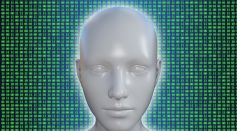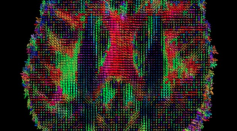Tags: Brain

Children Who Play Video Games Are Better at Working Memory Tasks, Says Study
10 Things Chess Does To Your Brain
How Does the Hippocampus Affect Bodily Functions?

Remembering 9/11: The Psychology Behind Terrorism
Florida Boy Dies After Contracting Brain-Eating Amoeba From Lake

AI Wrote An Op-Ed Convincing Humans That Robots Will Not Replace Humans

Brain Imaging Study Reveals the Role of Neural Flexibility Later in Life
New Study Suggests Best Therapy for Kids and Teens with Obsessive-Compulsive Disorder
Neurologists Are Treating Alzheimer's Disease by Sending Electrical Currents Deep in the Brain
Face Pareidolia: The Psychology of Seeing Faces in Inanimate Objects

Scientists Found No Difference in Men and Women's Brains After 100 Years of Searching

How REM Sleep and Appetite Are Connected
5 Reasons Why You Should Learn a Second Language

Understanding the Universal Law of Conservation of Brain Connectivity

What We Know About How Viruses in General Hang on in the Brain and Testicles
Japanese Scientists Discover How Hydrogels 'Mimic Biological Functions'

How Does Mobile Devices Affect Children's Brains? New Study Suggests No Association Between Them

Scientists Warn of Possible Surge of Coronavirus-Related Brain Damage
How Do Brains Process Scents? Study Reveals How People Interpret Odors
Scientists Link Migraines to the Malfunction of Specific Brain Cells
Most Popular

Ancient Hotspot Found to Have Created Great Lakes 300 Million Years Ago

Mysterious Structures Discovered Beneath the Pacific Ocean, Puzzle Scientists

Health Benefits of Drinking Hot Chocolate

Largest Known Volcanic Aquifer Discovered Beneath Oregon's Cascades





